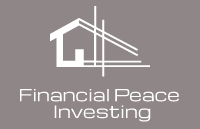Accredited Investor
An accredited investor is a person or entity authorized to invest in unregistered securities, bypassing the rigorous registration process mandated by the Securities and Exchange Commission (SEC). To qualify, individuals or entities must meet specific income and net worth criteria set by the SEC.
Why Become an Accredited Investor? The financial world often echoes the adage that “it takes money to make money.” Accredited investors enjoy a wealth of opportunities unavailable to their non-accredited counterparts. By allowing investments in private equity, hedge funds, venture capital, and private placements, the SEC facilitates potentially lucrative ventures for these investors. However, it’s important to understand the criteria determining who qualifies as an accredited investor.
Key Requirements to Qualify
According to Rule 501 of Regulation D from the Securities Act of 1933, an accredited investor can be defined as:
- Income Criteria: A natural person who earned over $200,000 in each of the last two years, or joint income with a spouse exceeding $300,000 during those years, with a reasonable expectation of the same income level in the current year.
- Net Worth Criteria: A natural person with a net worth exceeding $1 million at the time of purchase, excluding the value of their primary residence. This net worth criterion was adjusted with the 2010 Dodd-Frank Act, which excluded primary residence value from calculations.
Recent Changes and Expanded Definitions
In August 2020, the SEC amended its definition of accredited investors, allowing individuals to qualify based on professional knowledge, experience, or certifications, in addition to income and net worth. This amendment includes:
- Individuals holding certain professional certifications (like Series 7, Series 65, and Series 82 licenses).
- Knowledgeable employees of private funds who participate in investment activities for at least 12 months may also qualify.
- Various entities, including limited liability companies and governmental bodies, meeting specific investment thresholds. The entity must meet one of the following requirements: Own investments totaling $5 million or more. All equity owners must be accredited investors. Be an investment adviser (either SEC- or state-registered or exempt reporting advisers) or an SEC-registered broker-dealer. Be a bank, savings and loan association, insurance company, registered investment company, business development company, or small business investment company.
How to Confirm Accredited Investor Status
There isn’t a formal application process to become an accredited investor. Instead, investment firms are responsible for verifying an individual’s accredited status, often requiring documentation such as:
- Bank statements
- W-2 forms or tax returns
- Credit reports
- Proof of ownership and valuation of investment properties
Once the firm reviews and accepts your documentation, your accredited status is typically valid for one year or until your next tax return is due.
Investment Opportunities for Accredited Investors
Accredited investors gain access to a range of exclusive investment opportunities, including:
- Venture Capital Funds
- Hedge Funds
- Private Equity Opportunities
- Angel Investing
- Equity Crowdfunding
The SEC established these regulations and federal securities laws to protect non-accredited investors from the inherent risks associated with certain investments, which are exempt from many standard rules and regulations. These protections help ensure that individuals without substantial financial knowledge or experience are shielded from potentially risky financial and business matters.
However, achieving accredited investor status does not automatically mean you will be investing in high-risk opportunities. It signifies that you possess the financial resources and experience to navigate and manage the risks associated with private fund investments.
It’s important to remember that all investments carry some level of risk. Once you obtain accredited investor status, you can invest alongside other accredited individuals, increasing your potential for greater returns and the opportunity to grow your wealth over time.
For publicly advertised real estate private placement investments, being an accredited investor is typically a requirement. Some real estate syndications may allow non-accredited investors, though these opportunities are usually not publicly advertised. Rules 506(b) and 506(c) under Regulation D allow issuers to raise capital without SEC registration, but differ in their approach. Rule 506(b) permits unlimited capital from accredited investors and up to 35 non-accredited but sophisticated investors, with no general solicitation allowed. In contrast, Rule 506(c) allows general solicitation but requires all investors to be accredited, with issuers needing to verify this status.
At Financial Peace Investing, we provide opportunities under both rules, typically requiring accredited investor status. We also offer classes to equip investors with the knowledge to make confident investment decisions when opportunities arise. Our opportunities are not publicly available and are only known through relationships. Your referrals have the power to enrich lives of others and their loved ones! Have a family member, friend or co-worker that may be interested in what we do, simply connect us via email and we’ll share ideas.
Disclaimer: This information is for general and educational purposes and not intended as legal, tax, accounting, securities, or investment advice, nor an opinion regarding the appropriateness of any investment, nor a solicitation of any type.



